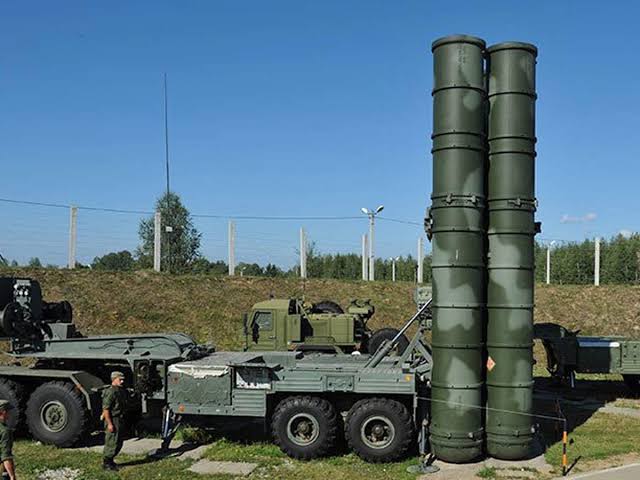Dogs May keep barking elephant is not bothered : Indo Russian S-400 Missile Deal

By
Colonel Awadhesh Kumar, Veteran Special Forces
Greg Chaffin, a non-resident fellow with the Atlantic Council’s South Asia Centre, recently stated that ultimately, India needs to determine whether or not it wants a long-term, high-tech relationship with the United States or Russia.
The analyst cannot be more wrong than this. It is just the other way round. It is the United States of America which must determine whether or not it wants a true long term friendship with India based on mutual respect and equality. High tech or low tech relationship has no place in this thing. It is just a matter of few years when India will be as high tech in every field.
So its time that USA administration, US Politicians and US media, all must desist from threatening India with respect to any thing in general and the S400 Indo Russian deal in particular. Though India will place no sanctions on those who wish to keep barking.
India has already finalized its multi-billion dollar arms deal with Russia for advanced high-altitude S-400 air defence missile systems. New Delhi maintain its own ‘strategic autonomy’ in International relationship and particularly in matters related to defence. So even as US seeks greater cooperation with India regarding China, India will not tie its own security too closely to that of any one country, not even the United States.
India has maintained defence ties with Russia for decades. Its military operates numerous Russian weapons systems and India builds most of these Russian-designed systems within the country itself. Though India is already moving ahead rapidly on the path of self sufficiency in the military, nuclear and space fiel
Missile and air defence is critical for India, with increasing concerns along the Chinese border, and of course the pesky Pakistan will always remain an irritant. So India will go ahead with its S-400 purchase despite U.S. tantrums and threat of sanctions under their funny domestic law called CAATSA.
Washington must think over hundred times before imposing CAATSA sanctions on India. Unlike Turkey, India never wants to become a purchaser of the F-35 JSF. Also India is not a NATO member or a lackey like UK. So any serious sanctions on India would represent a “grave setback” for U.S.-India relations. They would reinforce Indian persistent doubts over the U.S. as a reliable and predictable partner, and would slow down the pace of all future cooperation.
The Biden administration and members of Congress recognize the importance of U.S.-India ties for the future of the World in general and the Indo Pacific region in particular, especially in light of challenges posed by China. Consequently, they should not be eager to impose sanctions on India. There is still time for the Biden administration and Congress to get a sense of how this issue may be addressed and seek a solution. They should be rest assured that neither India requires any CAATSA waiver nor it will seek one. The ball is squarely with the USA, after all it is their own domestic legislation.
The biggest mistake USA will be making is try and ask New Delhi to explain its decision for going through S400 deal. Sovereign Nations do not give explanations for their Sovereign decisions to other Sovereign Nations. The new team in U.S. would do well to work together with their Senate and Congress to secure an outcome that avoids confrontation with India altogether.
USA should be rest assured that there will be an equally severe Indian backlash on any USA sanctions on India that would surely precipitate a downturn in relations.
If sanctions ultimately prove unavoidable, which is likely under CAATSA, Greg Chaffin anticipates them to be “very mild.”
“I think it is also likely that India will be granted a waiver, though this cannot be granted in advance,” he said.




